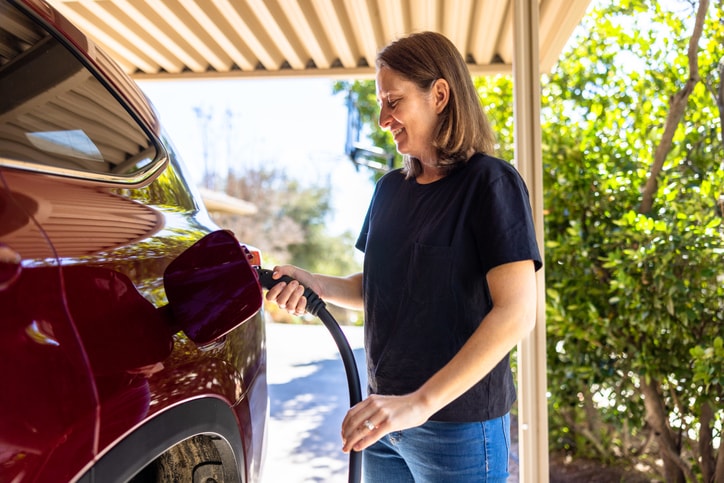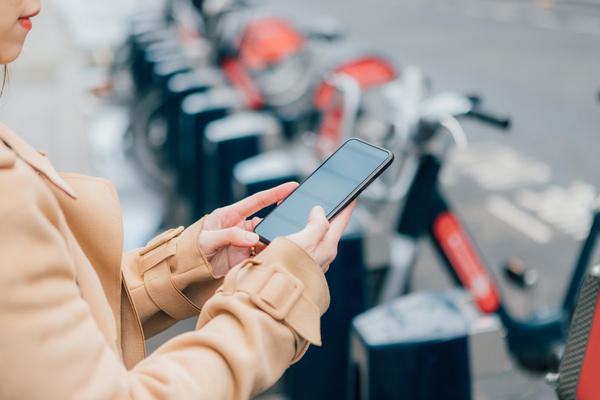Wednesday, July 24, 2024
¡Riégame!
¡Gracias!
Three percent of the Spanish population lives in municipalities with fewer than 1,000 inhabitants. We take a look at the mobile services that help ensure that their residents do not become isolated, while also contributing to environmental, economic, and social sustainability
By José Manuel Blanco López
According to data from Spain's National Statistics Institute (INE), at the end of 2021, there were 4,986 municipalities in Spain with fewer than 1,000 inhabitants, where 3% of the population lives. So-called “empty Spain,” with a majority of elderly people, suffers from a lack of services and means of transportation. Therefore, itinerant services are a sustainable alternative for these towns
Bookmobiles, which bring books and other materials to towns without libraries, are a historical example of these itinerant services. The first “library-cart” emerged in 1905, in the United States, and in December 1953 the first Spanish bookmobiles began operating in the outskirts of Madrid. More than 70 years later, the motto of Bookmobile Day 2024 – celebrated on January 28th – was “Bookmobiles so no one is left behind.” This phrase demonstrates their sustainability and social power, as they bring culture to places where it is not economically viable or possible to have a permanent library.
The president of the Association of Mobile Library Professionals (ACLEBIM) and manager of mobile libraries in León, Roberto Soto, emphasizes to Planet Energy that by providing this type of service to numerous locations with a single bus, they make “a single investment, a relatively small investment for the breadth of the service.”
Additionally, this service offers social sustainability, since, based on his experience, the bookmobile mitigates loneliness, especially among the elderly, “who receive the bookmobile as if it were a party, because it not only provides them with entertainment and knowledge for a long period of time, but also allows them to share their concerns with someone who will listen to them, and catch up with their neighbors.”
Soto tells us that there are vehicles with lithium batteries or solar panels to supply power for the computers or the air conditioning system, and that the first electric bookmobile is already on the road in Finland.
Traveling business with sustainability
Sometimes not even a small business survives in a village. Beyond bars, which bring together so many rural communities, stores are scarce or even non-existent, and residents have to figure out a way to do their shopping. In some municipalities, the baker delivers bread every morning, and meat and fruit arrive with traveling vendors. These itinerant markets can also be tools to achieve sustainability.
This is demonstrated by initiatives such as the one in ten towns in Guadalajara with populations ranging from 15 to 135 inhabitants. Their residents purchase basic products from a physical store by phone or online and an electric van delivers them to their door or to smart lockers located in each town. The catalog includes products from nearby regions, thus promoting local commerce. The president of the Association of Alto Tajo Municipalities, Enrique Collada, is clear that this sustainable initiative: “Helps improve residents’ quality of life.”

Meanwhile, in Villangómez, a small village in Burgos with around 200 inhabitants, they are coming up with a mobile market 2.0. It would have a physical component, a street vendor area next to refrigerated lockers where orders can be dropped off and collected; and a digital component, with a platform where vendors and producers can put their products up for sale. According to the mayor of the town, Gonzalo Ausín, with this initiative “the aim is to bring life to the towns,” as having street vendors would attract visitors to the town.
For its part, Amazon has a program for small businesses to distribute their orders to municipalities, which also serves to maintain population and make deliveries more sustainable.
Rural doctors and sustainability
Rural doctors use a great amount of time and result in significant environmental emissions. According to a study by the General Council of Official Medical Associations(CGCOM), 45% of rural doctors travel more than 50 kilometers every day to attend to the population, and 25% travel more than 100 kilometers.
Dr. Keith Albert Foo, president of the Galician Society of General and Family Medicine and a rural doctor at the Laza-Verín health center, explains to Planet Energy that these health professionals “face countless logistical, geographical, and often weather-related challenges, demonstrating a strength and commitment that goes beyond the ordinary.”
Foo mentions that their means of transportation are varied, from car to bicycle to walking, and that technology helps make their work more sustainable: “Telemedicine, video consultations, and new technologies such as clinical ultrasound, dermoscopy, and AI image interpretation not only facilitate the work of the family doctor, but also help us avoid unnecessary travel.”
How to move and educate in rural areas
In the absence of bus lines that connect to larger towns, or when schedules are impossible, car sharing among residents eliminates transportation barriers and is shown to be a sustainable alternative for the environment and the economy. For example, Kudea Go! provides information on transportation options between rural areas in Navarre (taxis, buses, bike rentals, etc.) and also on people who are sharing available seats on their car trips.
BlaBlaCar, an app for car sharing on long journeys, has an algorithm of smart stops, so that users can request that drivers drop them off in the towns along their route, without the need for them to manually add them to their trip. This has helped services to reach numerous towns with fewer than 100 inhabitants: in 2022, the company connected 646 towns with fewer than 100 people, a 160% increase compared to 2021.
And what about children? Thinking about sustainability and rural schools doesn’t only mean that students in towns should learn about and use good environmental practices. It means asking ourselves how to make a school more sustainable in terms of resources without pupils losing educational quality. Among parents’ concerns, the costs of transportation to a town with a school or maintaining infrastructure have arisen, but parents also underline that the lower student ratio translates into more personalized attention; in this way, learning is improved and the social sustainability of small communities is reinforced.
From culture to food, from healthcare to education, traveling services are sustainable forces of the economy, the environment, and society. Without them, small communities would be less close-knit and less connected to the environment that surrounds them.
¿Te ha parecido interesante?
Te ha gustado este contenido





